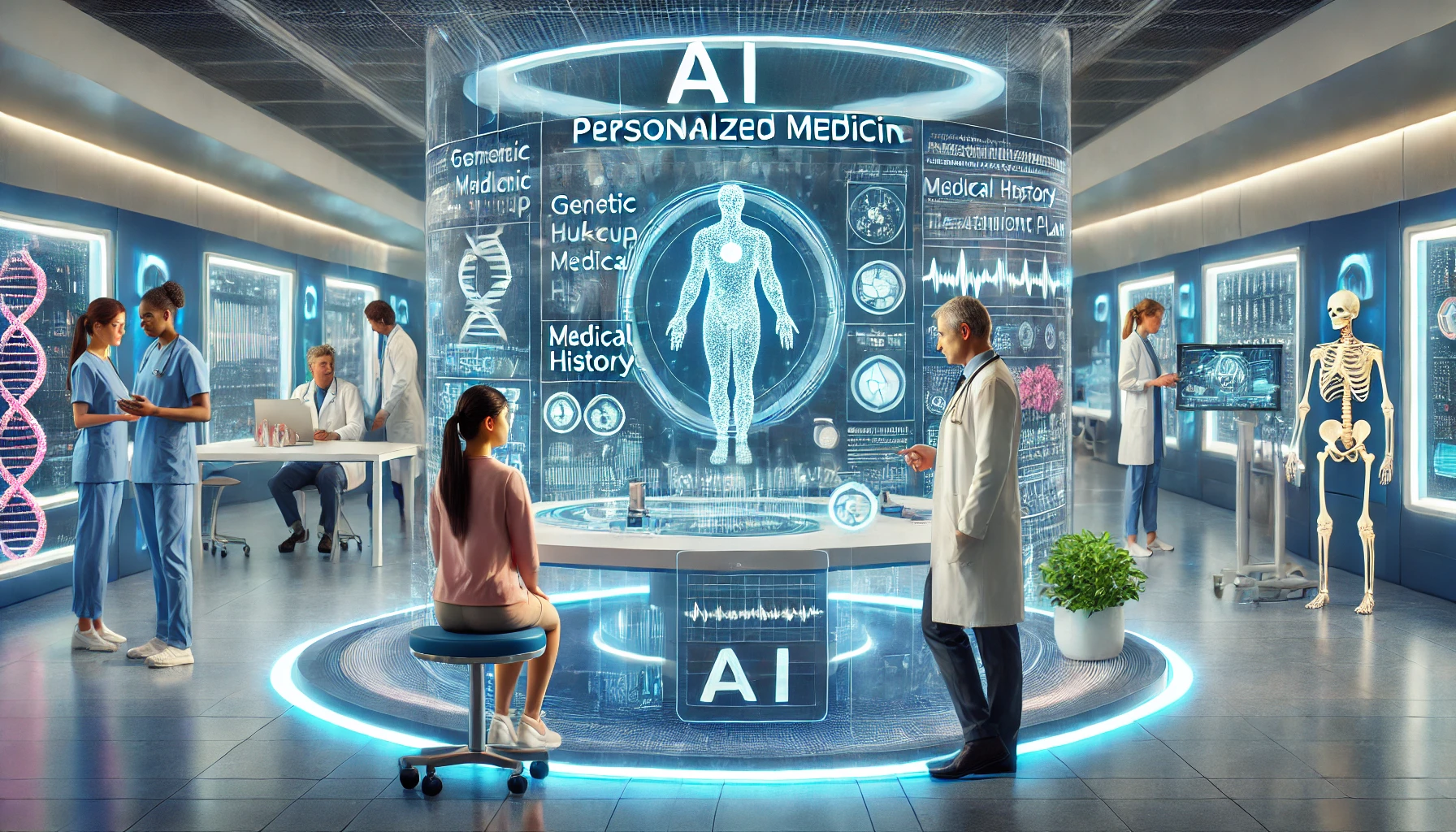Personalized Medicine: A Tailored Approach to Healthcare
One-size-fits-all medicine is becoming less common. A new paradigm called as precision medicine or personalized medicine is taking its place. This ground-breaking method seeks to customize medical care for each patient according to their own genetic composition, medical background, and lifestyle choices. Healthcare professionals can make better decisions and give more effective treatments by utilizing the power of genomics and artificial intelligence (AI).
The Science Behind Personalized Medicine
Understanding the human genome is the cornerstone of customized medicine. Understanding the genetic differences that contribute to treatment response and illness vulnerability has been made possible by genomics, the study of genes and their functions. Healthcare professionals can find particular genetic markers linked to particular diseases and adjust therapies by examining a patient’s genetic data.
The Impact of Personalized Medicine on Human Life
The following are some ways that personalized medicine could transform healthcare:
• Early Disease Detection: By identifying people who are at high risk for specific diseases, early interventions can be put in place to stop or postpone the beginning of such diseases.
• More Effective Treatments: By customizing therapies to a patient’s genetic composition, adverse effects can be minimized and treatment effectiveness increased.
• Lower Healthcare Costs: Personalized medicine can result in significant cost savings by preventing ineffective therapies and decreasing unpleasant medication reactions.
Challenges and Ethical Considerations
Personalized medicine has a lot of potential, yet there are drawbacks and moral dilemmas as well:
• Data Security and Privacy: Security and privacy issues are brought up by the gathering and examination of genetic data.
• Cost and Accessibility: Many people may not be able to afford the high cost of genetic testing and customized therapies.
• Ethical Implications: Careful ethical considerations are necessary due to the possibility of genetic discrimination and the misuse of genetic knowledge.
Improving Personalized Medicine
A number of tactics can be used to further customized medicine:
• Growing Genetic Databases: Predictive model accuracy can be raised by increasing the amount and diversity of genetic databases.
• Creating AI-Driven Tools: AI algorithms can assist in the analysis of intricate genetic data and the discovery of pertinent biomarkers.
• Ethical rules and Regulations: To safeguard patient privacy and guarantee the responsible use of genetic information, clear ethical rules and regulations are necessary.
A Real-World Example
Pharmacogenomics is used to optimize drug therapy, which is a form of customized medicine. Healthcare professionals can minimize negative drug responses and maximize therapeutic advantages by predicting a patient’s response to a given medication by examining the patient’s genetic composition. For example, a patient’s drug metabolism may be impacted by certain genetic variants, which may impact the right dosage and time between doses.
Personalized medicine has a promising future. We may anticipate seeing more advanced instruments and methods as technology develops further, allowing us to customize care to meet the unique requirements of every patient. We can usher in a new era of healthcare that is more patient-centered, effective, and efficient by adopting this individualized approach.

Leave a Reply